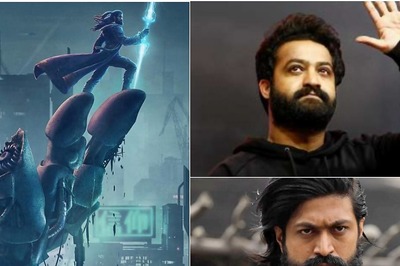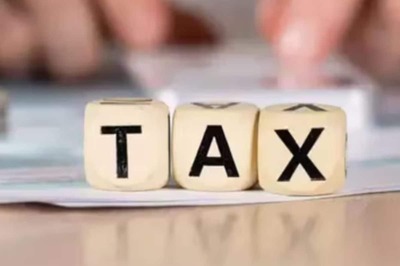
views
PUDUCHERRY: There’s trouble knocking again at Chief Minister Rangasamy’s door. The All India NR Congress (AINRC) government’s move to appoint three nominated MLAs with the intention of strengthening the government has not found favour with the AIADMK. Raising an objection to the same, the latter has handed out two options to the AINRC - either frame clear-cut guidelines for the appointment of nominated MLAs or else delete the provision of nominated MLAs from the Union Territories Act, 1963 altogether. The AIADMK fears that the proviso might lend itself to gross misuse, namely, inflating the number of the ruling party members and distorting the public mandate in the process. In a memorandum to the Lieutenant Governor Iqbal Singh on Thursday, a team of five AIADMK MLAs led by A Anbazhagan, leader of the legislative party, stated that for a small Union Territory with 30 elected members, the appointment of three nominated MLAs recommended by the government would lead to subversion of democracy, especially when the government enjoyed a slender majority.Although provisions exist in the Union Territories Act to appoint nominated MLAs, no guidelines for selection have been issued so far. Neither is there clarity on their voting rights in the legislative Assembly, except that they cannot vote in the presidential election. It has become customary for the ruling party to appoint politicians of its choice as nominated MLAs, to suit its own convenience regardless of their (MLAs) special background to merit selection. As per the provisions of the UT Act (sub-section three of section three of the Act), the central government may nominate three persons. The powers to nominate persons is vested with the central government and the Chief Minister cannot recommend any names unilaterally, stated the MLAs in the memorandum.The AIADMK maintained that there were doubts about the government enjoying majority, established by the support of independent MLA V M C Sivakumar, and the step to appoint nominated MLAs even before the election of the speaker was to inflate the number of the ruling party in the event of any revolt by any MLA, or withdrawal of support by independent MLA. The speaker election has been kept pending even after a month of the government assuming power, and is being planned only after the appointment of nominated MLAs. As there was no clarity on voting rights of nominated MLAs, in keeping with the highest traditions of democracy, they should not be allowed to vote.In order to avoid the possible distortion of the people’s mandate, the AIADMK urged the union home ministry not to clear the proposal forwarded by the Lieutenant Governor. Instead, the Lieutenant Governor should ask the AINRC government to establish majority on the floor of the House, before such appointments could be made.It is not mandatory to appoint nominated MLAs and as such appointments were not made during the tenure of several assemblies. For instance, no nominated MLAs were appointed in 1964, 1969,1974, 1977 and 1980. For the first time, nominated MLAs were appointed in 1985, when M O H Farook was the Chief Minister and then subsequently in 1990. Between 1991 and 1996, no nominated MLAs were appointed. That changed, however, with the appointment of nominated MLAs in 1996, 2001 and 2006.Later talking to mediapersons, Anbazhagan threatened to move court if the nominated MLAs were appointed.NR behaving like an autocrt: AIADMKThe AIADMK has accused Chief Minister N Rangasamy of functioning in an autocratic manner and has urged the Lieutenant Governor to advise the Chief Minister as to how one functions in a democracy. Briefing mediapersons at the Raj Nivas on Thursday, A Anbazhagan, secretary of the local unit of the AIADMK and MLA, said that even after 15 days, ministers have yet to be assigned portfolios. Neither has the speaker been appointed nor the Assembly convened. Citing the AIADMK government under J Jayalalithaa in Tamil Nadu, he said that so many legislations had been passed and decisions taken in the Assembly, but in Puducherry the government had come to a standstill. It appeared to be a one-man government, he said, and questioned whether it was a democracy or monarchy.




















Comments
0 comment